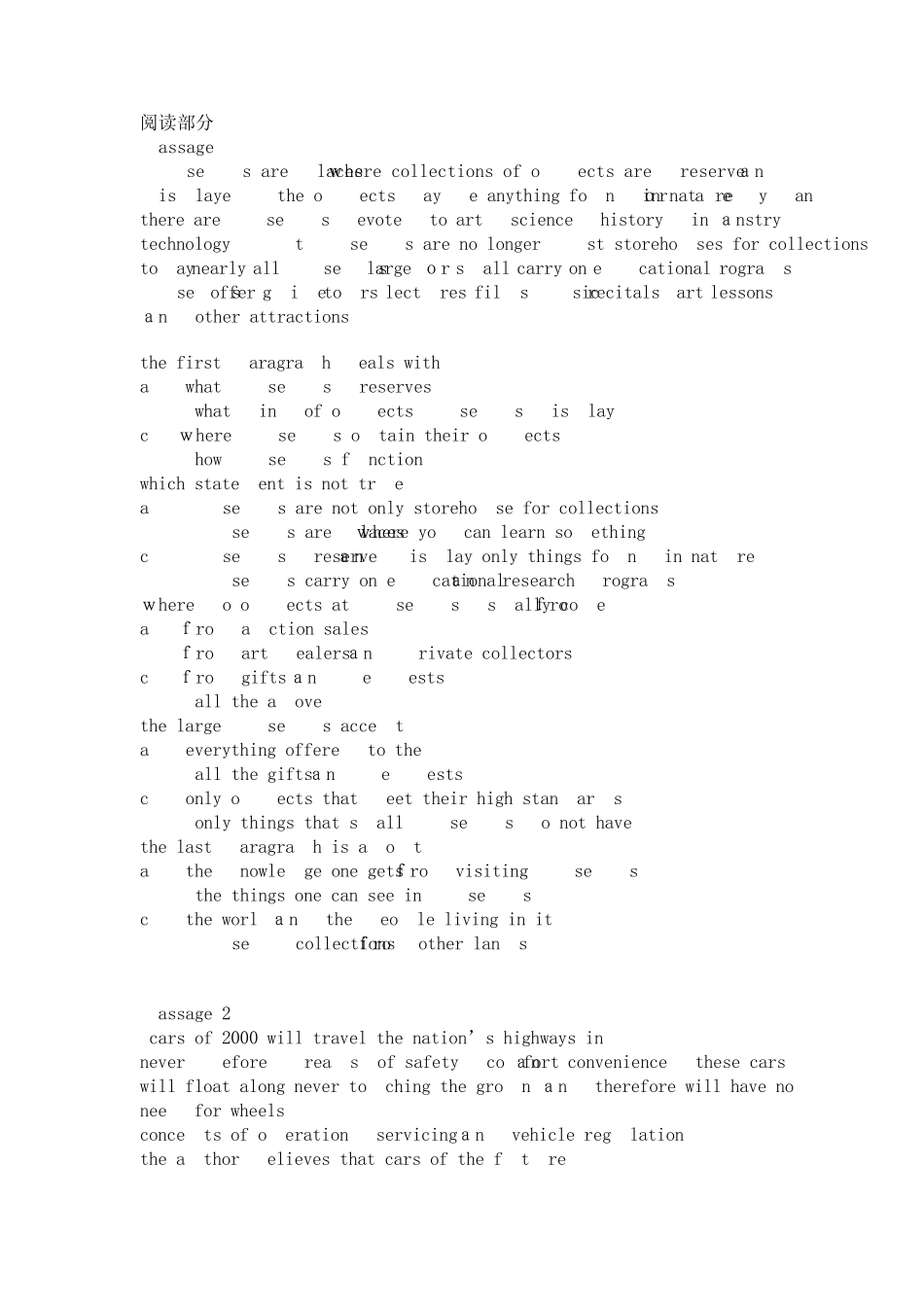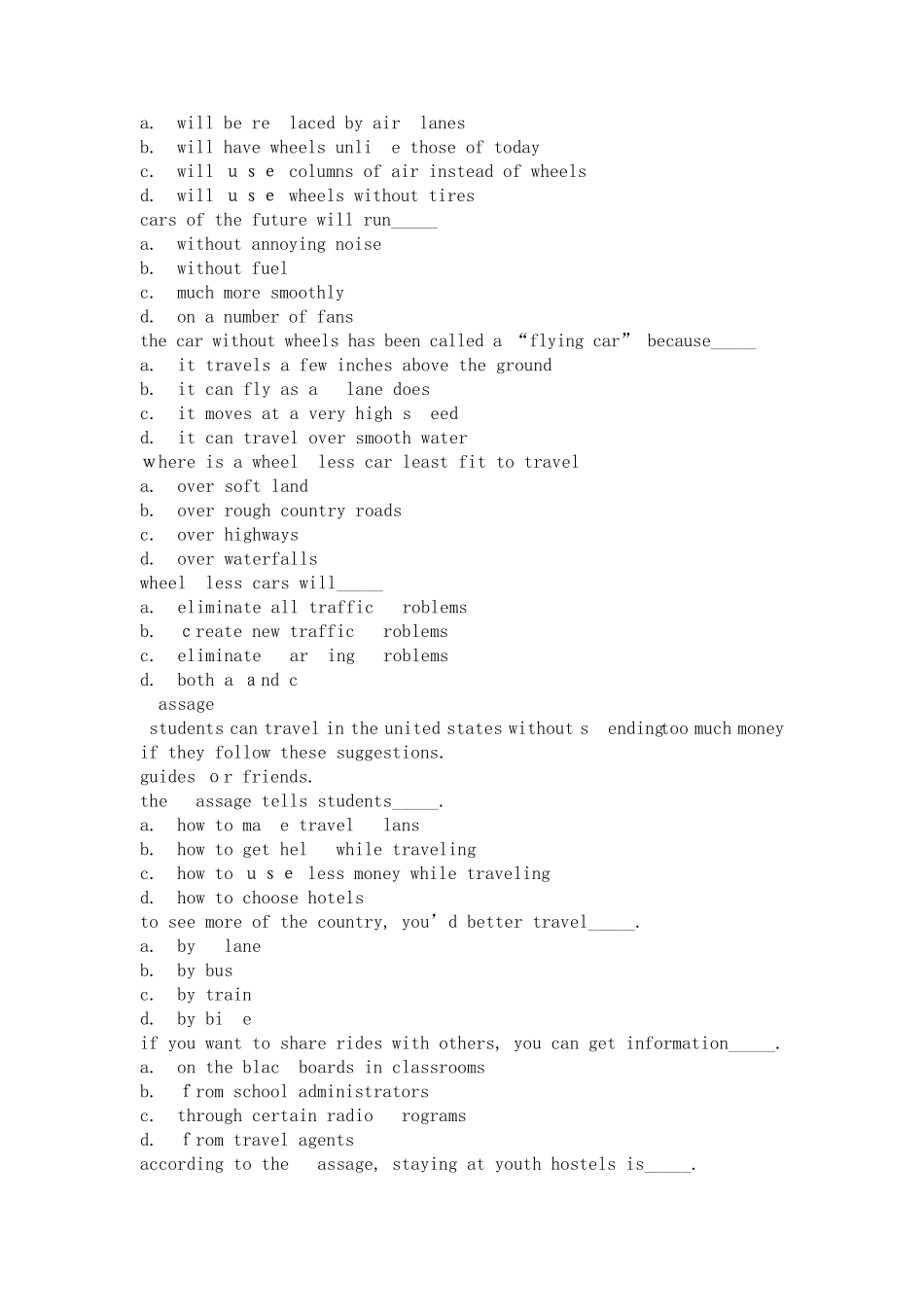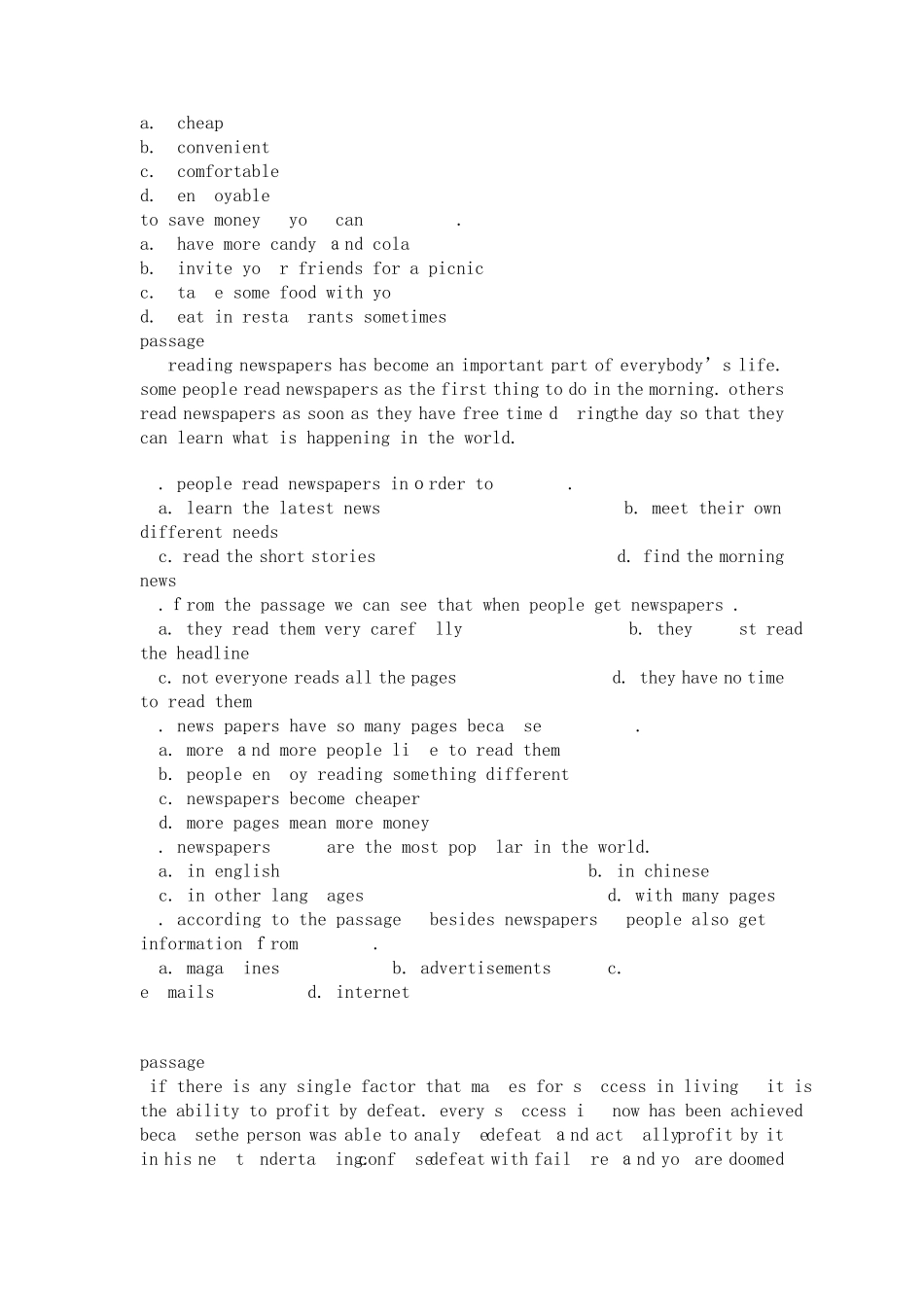阅读部分 passage 1 museums are places where collections of objects are preserved and displayed. the objects may be anything found in nature or made by man. there are museums devoted to art, science, history, industry, and technology. but museums are no longer just storehouses for collections. today nearly all museums, large or small, carry on educational programs. museums offer guided tours, lectures, films, music recitals, art lessons, and other attractions. the first paragraph deals with______.D a. what museums preserves b. what kind of objects museums display c. where museums obtain their objects d. how museums function which statement is not true? C a. museums are not only storehouse for collections. b. museums are places where you can learn something. c. museums preserve and display only things found in nature. d. museums carry on educational and research programs. where do objects at museums usually come from? D a. from auction sales. b. from art dealers and private collectors. c. from gifts and bequests. d. all the above. the large museums accept______. C a. everything offered to them b. all the gifts and bequests c. only objects that meet their high standards d. only things that small museums do not have the last paragraph is about_____. A a. the knowledge one gets from visiting museums b. the things one can see in museums c. the world and the people living in it d. museum collections from other lands passage 2 cars of 2000 will travel the nation’s highways in never-before-dreams-of safety, comfort, and convenience. these cars will float along never touching the ground, and therefore will have no need for wheels. concepts of operation, servicing, and vehicle re...


